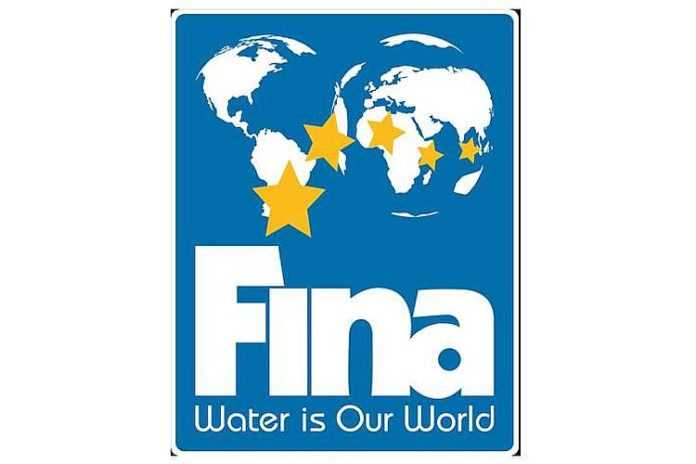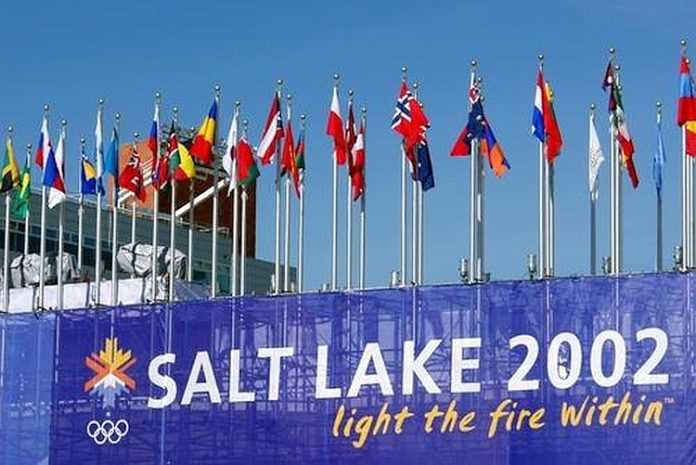If you listen to the leaders of the Olympic Movement, and especially International Olympic Committee chief Thomas Bach of Germany, you will hear – over and over again – “it’s all about the athletes.”
Except when it’s not. That’s what makes the current face-off between the international federation for aquatic sports – known by its old acronym, FINA – and some of the world’s elite swimmers worth watching.
The short summary of the situation is that a Swiss company called International Swimming League (ISL) is trying to set up a 15-meet series of swim meets featuring teams made up of the top swimmers in the world. Its primary supporter is Ukrainian businessman Konstantin Grigorishin, the largest shareholder of the Energy Standard Group. His company sponsored an Energy for Swim meet in August, 2017 that was held in Rome (ITA) and included competitors from Australia, Italy, Ukraine and the U.S.
ISL planned to hold another meet this month in Turin (ITA), in collaboration with the Italian swimming federation, with $2.1 million in appearance and prize money. The meet was scheduled to be held after the end of the FINA World Short-Course Championships in China, so there would be no conflict with any FINA swimming competitions and more than 50 top swimmers had signed up.
But FINA objected, and according to a suit filed on anti-trust grounds in the U.S. Federal Court for the Northern District of California:
“FINA’s [Secretary General Cornel] Marculescu circulated a letter to every FINA member designed to cripple ISL’s plans. ISL, he noted, ‘is neither recognised by nor affiliated to [sic] FINA.’ FINA would monitor the matter closely, he warned, and sanction anyone who violated FINA’s rule on unauthorized relations. In closing, Mr. Marculescu expressed his hope that all who received it would come away from his message with “a clear and mutual understanding of FINA’s competence and jurisdiction in respect to international competitions.”
FINA’s General Rule 4.5 specifically provides for sanctions with a “non-affiliated or suspended body” and “Any individual or group violating this Rule shall be suspended by the affiliated Member for a minimum period of one year, up to a maximum period of two years.”
So FINA’s threat is essentially to suspend swimmers who compete in the meet, and resulted in the meet being canceled by the Italian federation.
The next step was the 7 December filing in the U.S. of two suits against FINA, one by ISL and another as a class-action suit by swimmers themselves, with Olympic gold medalists Tom Shields (USA) and Katinka Hosszu (HUN) and multi-time U.S. national champion Michael Andrew.
Because FINA does business in the U.S. through its affiliation and oversight of USA Swimming, as well as television and sponsorship agreements with U.S. companies, the filings assert that FINA can be sued in U.S. courts. Some of the same reasoning was used by the U.S. Department of Justice in its prosecution of cases against FIFA executives, which have resulted in multiple convictions in cases tried in New York.
Both suits allege FINA has restrained trade illegally under the Sherman Act, 15 United States Code §§ 1-2, which starts with “Every contract, combination in the form of trust or otherwise, or conspiracy, in restraint of trade or commerce among the several States, or with foreign nations, is declared to be illegal.” The suit asked for an injunction against FINA “prohibiting FINA from unlawfully interfering in any way with the ability of ISL or any other person or entity from organizing or promoting swimming competitions,” and for monetary damages.
This is so silly. Why is FINA doing this? The facts are very much against them:
∙ The Energy for Swim meet scheduled for 20-21 December in Turin does not conflict with any FINA competition, and is five days clear of the end of the just-completed FINA World Short-Course Championships in China.
∙ Meets not organized by FINA which award prize money and are not competitions between national teams are commonly organized. USA Swimming has run an annual series – now called the Tyr Pro Swim Series – that dates back to the 2007-08 swimming season.
∙ In Europe, the Mare Nostrum three-meet series – which also has prize money – has been around since 2000; the 2018 meets were held in France, Monaco and Spain.
Moreover, if there are more opportunities for swimmers to make money and be shown more regularly on television, why should FINA be against it? In fact, the added exposure can only help promote FINA’s own championship events, featuring the same swimmers!
It’s also interesting that these suits were filed in the U.S. and not in Europe, where the European Union rules on restraint of trade are even tougher than the Sherman Act. It may be that the European suit is only being delayed for timing purposes, or due to specific requirements of European law. But that suit is sure to come as well.
Other sports have worked these issues out without so much drama:
∙ In track & field, four of the best-known and most prestigious invitational meets – the Bislett Games in Olso (NOR), ISTAF Meeting in Berlin (GER), Weltklasse im Zurich (SUI) and Van Damme Memorial in Brussels (BEL) – got together and sold television and sponsorship rights together as the “Golden Four” in 1992.
The International Assn. of Athletics Federations (IAAF) “expanded and co-opted” the idea as it formed the IAAF Golden League in 1998, the forerunner of today’s IAAF Diamond League.
∙ In soccer, FIFA has cooperated with the club leagues in every country to create scheduling windows for club competitions and national-team competitions. There is plenty of friction to be sure, but everyone seems to be able to co-exist in this structure and both club football and national-team events have never been more popular.
FIFA, of course, has the rule-making authority in the sport and these are observed worldwide. It’s worth noting that ISL and the Italian swimming federation specifically noted that FINA rules for competition and drug testing would be observed in the Energy for Swim meet and the contemplated ISL series in 2019.
FINA issued a weak statement after the filings were made in U.S. Federal Court, noting – apparently seriously – that “FINA remains open to proposals that would genuinely enhance – rather than conflict with – the current and planned competition calendars, providing further opportunities for aquatics athletes, and ideally in a manner that benefits the whole sport.”
It’s worth remembering the International Olympic Committee’s “Athletes’ Rights and Responsibilities Declaration” issued with considerable fanfare on 9 October. Section I.5. states that athletes have the right to:
“Leverage opportunities to generate income in relation to their sporting career, name and likeness, while recognising the intellectual property or other rights, rules of the event and of sports organisations as well as the Olympic Charter.”
The proposed Energy for Swim meet and the ISL swim series can actually help FINA, rather than hurt it. By placing itself against the desire for swimmers to be able to ply their trade – and it is a very much a full-time job for the world’s elite swimmers – FINA has placed itself in a position where its authority and status can be challenged and reshaped by governments and courts which are well outside of its control.
FINA should settle this matter as soon as possible and in the athlete’s favor. ISL should be encouraged to offer meets which support athletes through appearance and prize money, and a “calendar conference” that makes room for FINA’s events, the Tyr Pro Swim Series, the Mare Nostrum series, national championships and the ISL series should be held right away.
British world Breaststroke record holder Adam Peaty wrote on Instagram of FINA’s heavy-handed approach, “I think this is the wrong decision and it will galvanize the swimmers, not break them.” More than a dozen top swimmers will meet with ISL on 18-19 December to plot the next move.
Rich Perelman
Editor

























